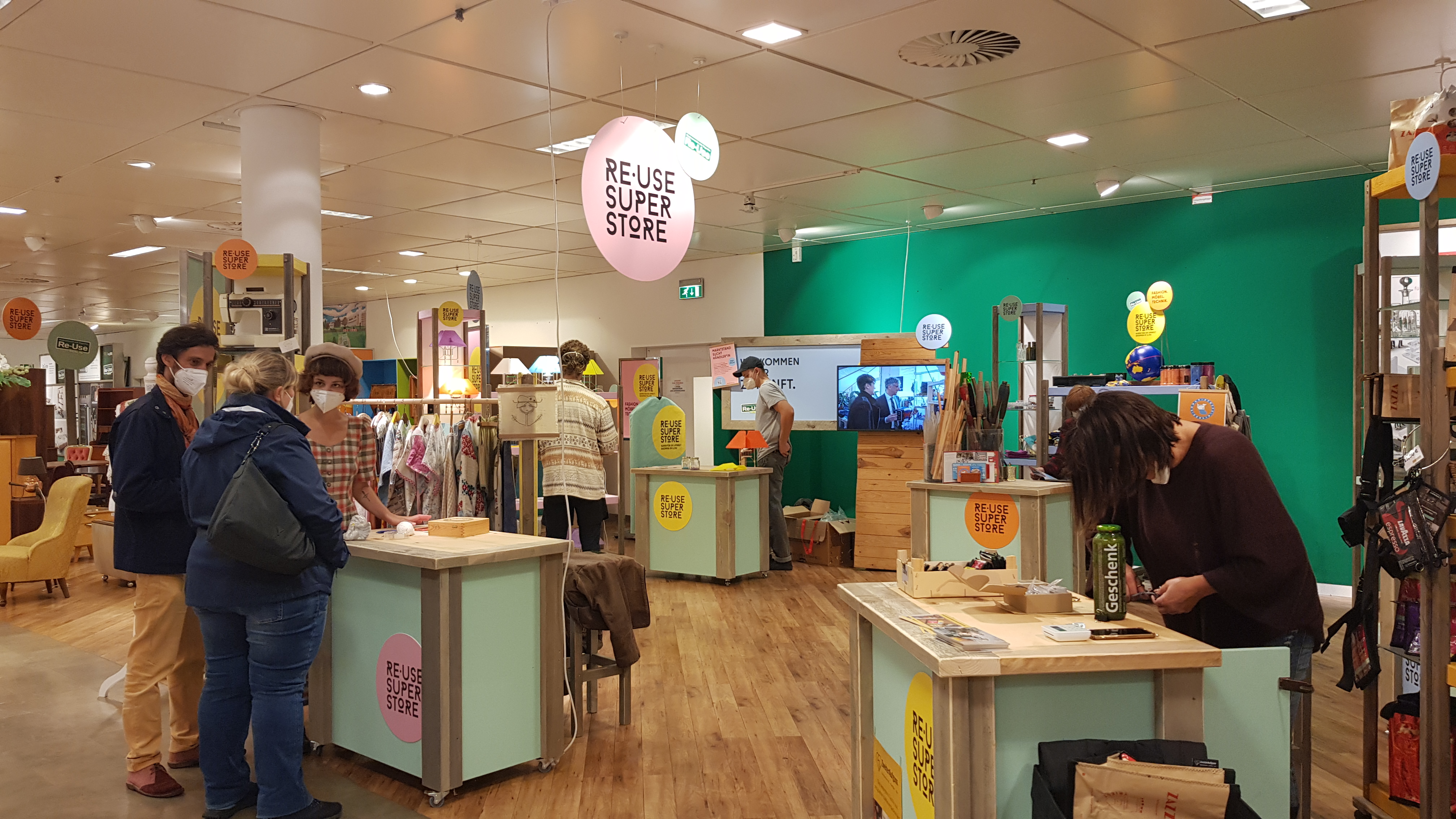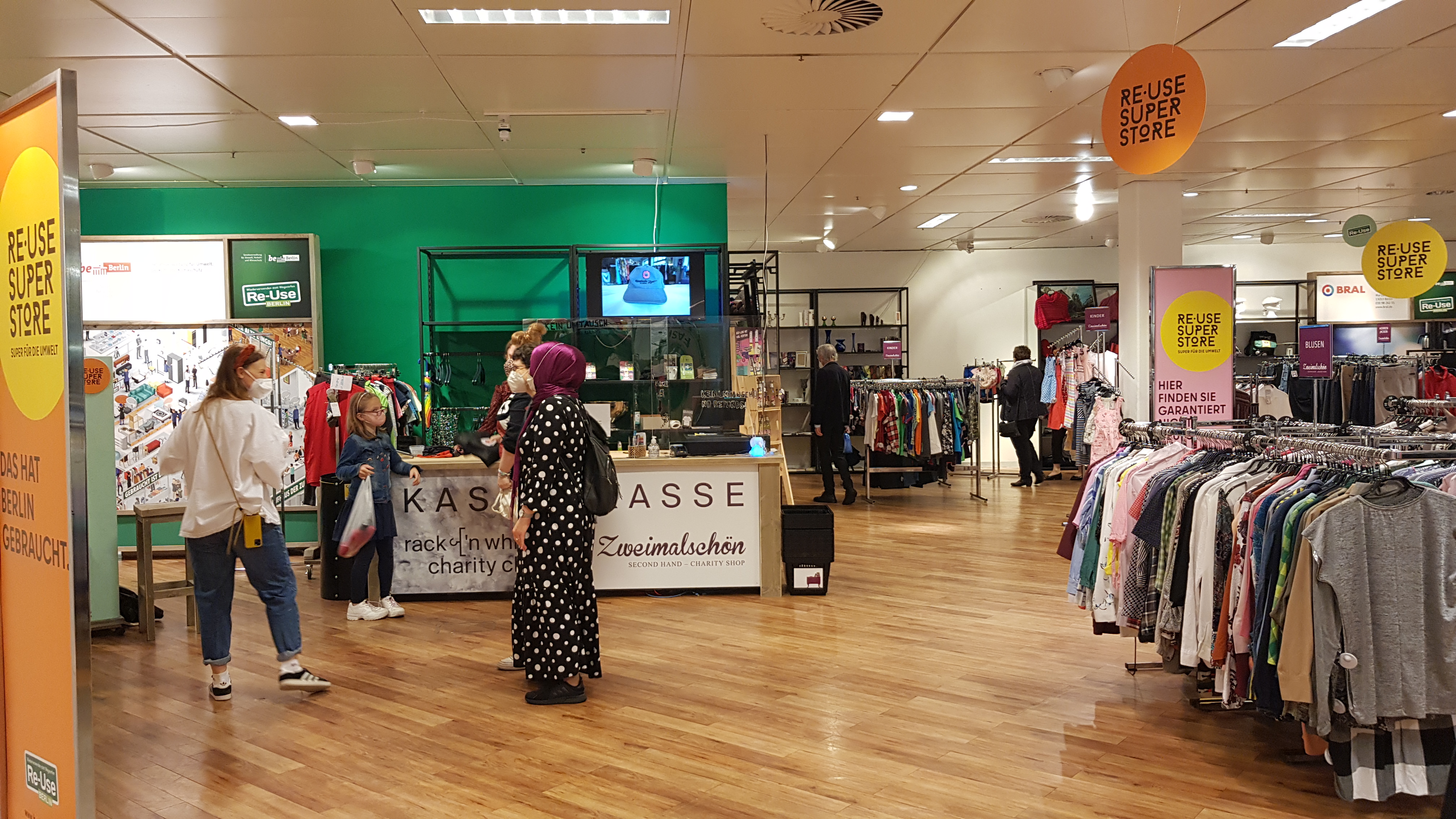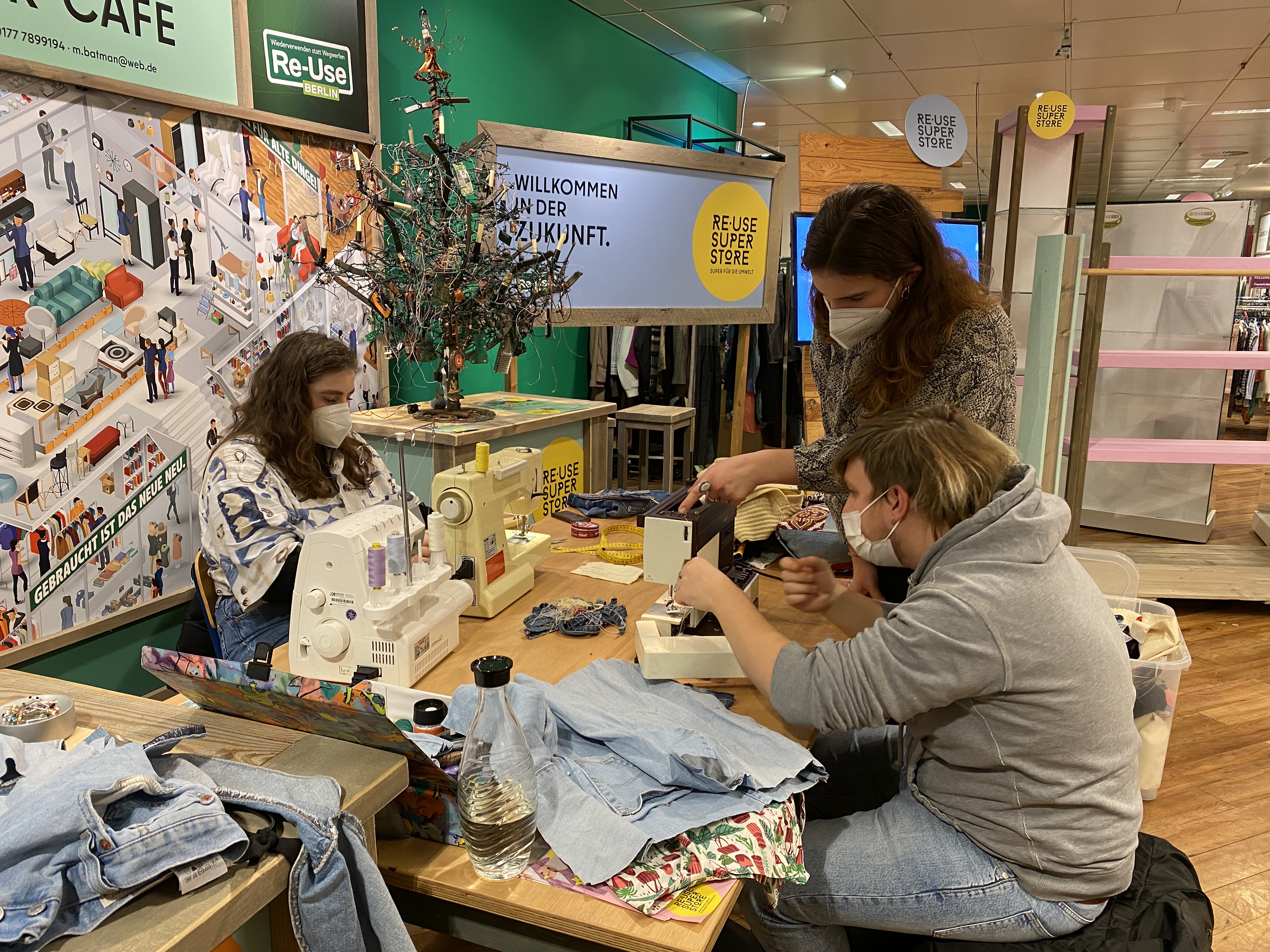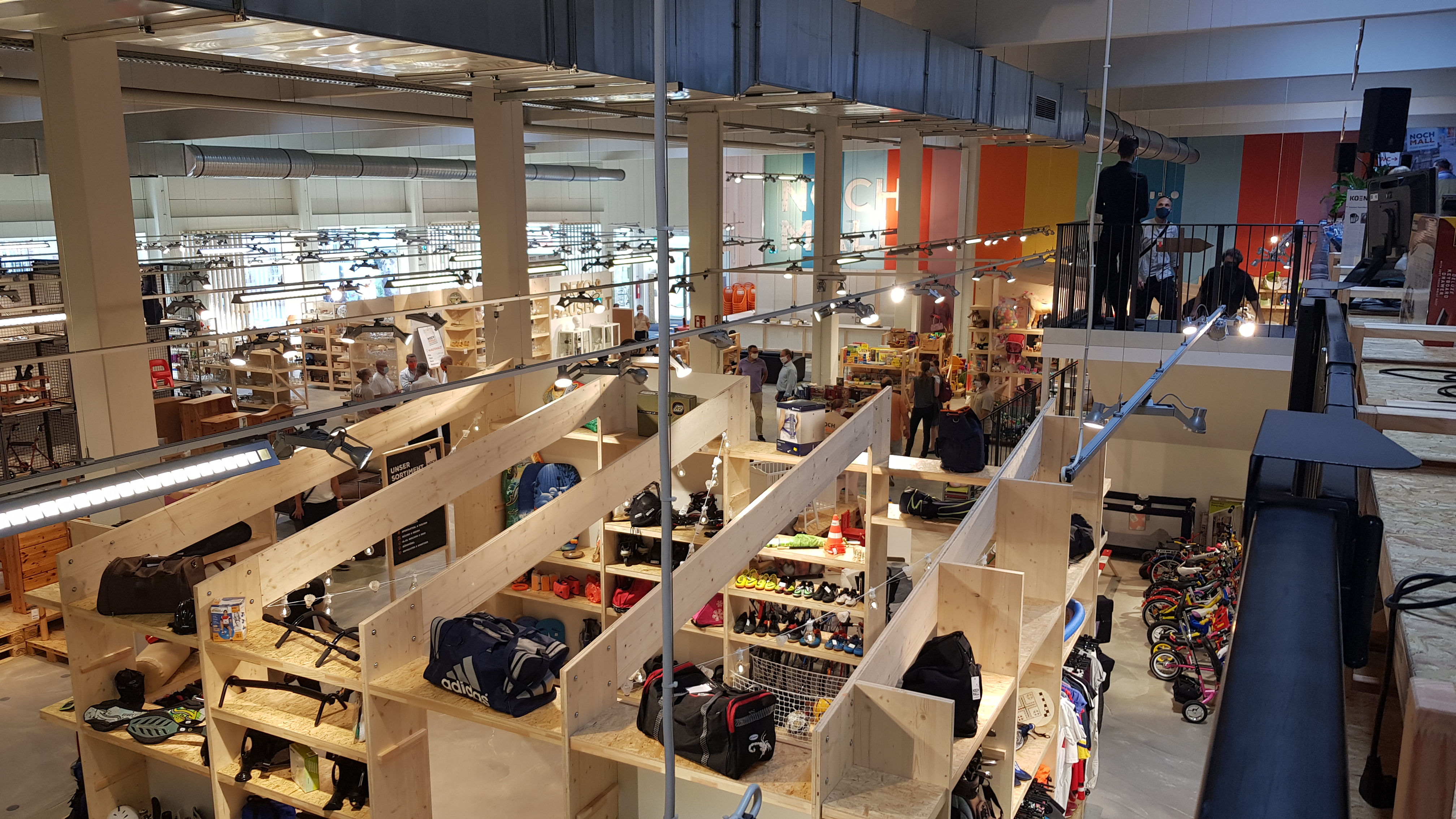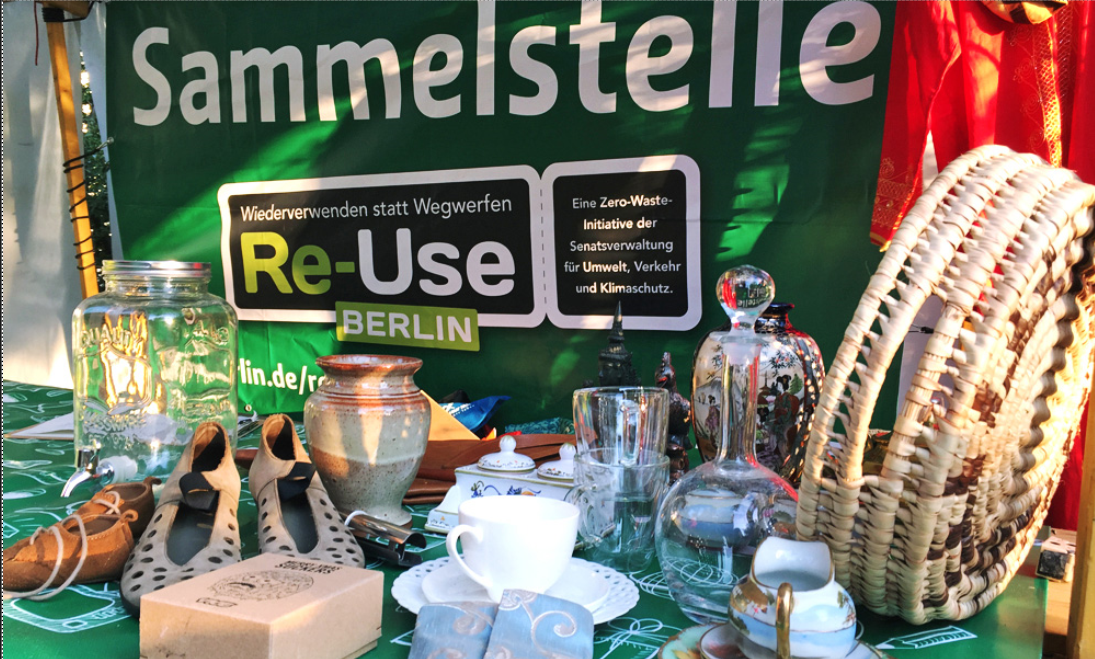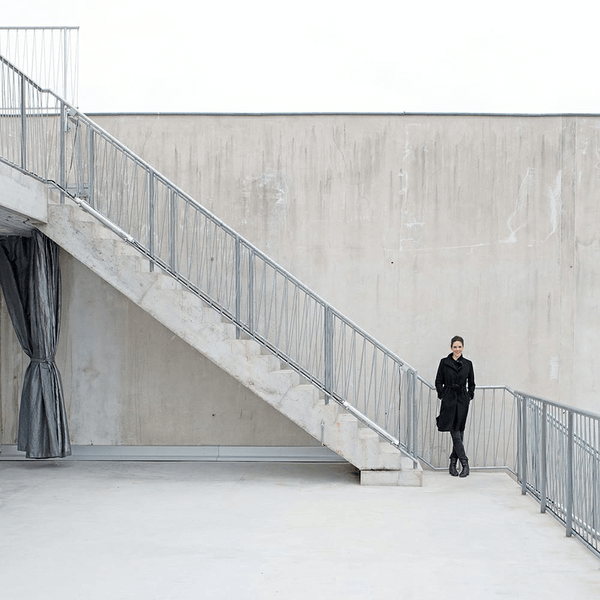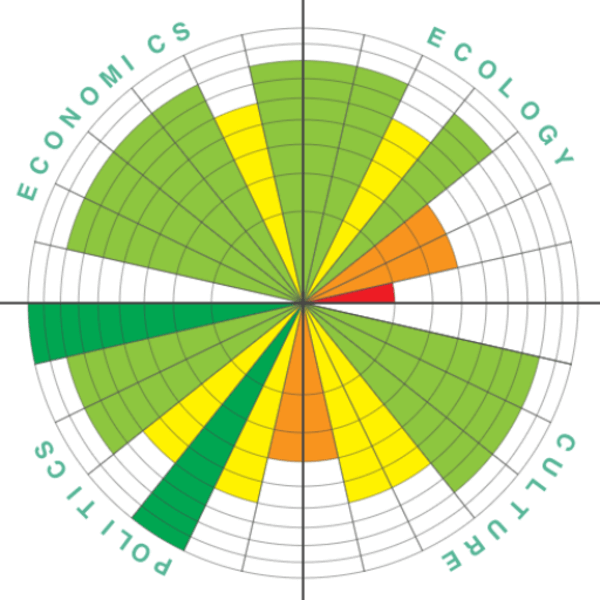City
Berlin
Main actors
City Government, Private Sector, NGO / Philanthropy, Community / Citizen Group
Project area
Whole City/Administrative Region
Duration
Ongoing since 2018
The Re-Use Berlin initiative aims to raise awareness for sustainable consumption by promoting the reuse of products as a genuine alternative to buying new ones. This campaign is implemented through several modules that involve testing and implementing new concepts for donating and purchasing second-hand goods. Initially, collection campaigns were conducted at weekly markets and pop-up stores, but since 2020, the initiative has been running a department store for second-hand goods - the Re Use Superstore - in an established Berlin department together with partners, complemented by various events, lectures, and workshops.
Moreover, the initiative holds idea competitions, implementing some of the best suggestions in follow-up actions, and regularly organises expert dialogues on various relevant topics. As part of the initiative, collection boxes for used glasses, printer cartridges, and exchange boxes for used shipping materials are set up across the city. Additionally, the Re-Use Initiative sees itself as a networking platform where multiple Berlin actors collaborate to achieve common goals. For instance, in January 2023, 24 actors from the Re-Use scene presented themselves together in the "Re-Use Superstore" at the international "Green Week" trade fair in Berlin. Finally, all campaign activities are extensively promoted both offline and online, using diverse communication channels like events, press releases, flyers, and social media, with the support of celebrities and city light columns.
External links / documents
On Map
The Map will be displayed after accepting cookie policy
